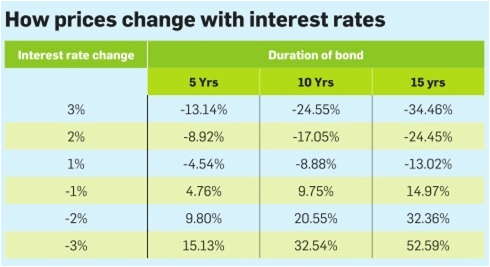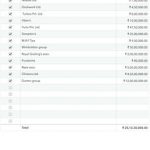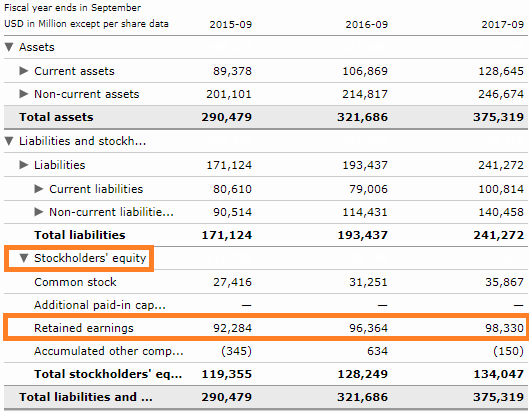
Software reps might push you to buy more sooner, but there is absolutely no reason to sign up for a higher subscription level than you think you need. He joined NerdWallet in 2019 as a student loans writer, serving as an authority on that topic after spending more than a decade at student loan guarantor American Student Assistance. In that role, Ryan co-authored the Student Loan Ranger blog in partnership with U.S.
We cover all kinds of businesses
This makes it more customizable than typical closed-source, or proprietary, software that you purchase, download and work with as-is. Open-source products, like Odoo, are ideal for business owners who know how to code and want to play a hands-on role in customizing the product to fit their business needs. Feature set includes an excellent mobile app and suite of reports, capable invoicing features, plus automated bill and receipt capture through Hubdoc. Reporting capabilities increase with each plan, but even the least expensive Simple Start plan includes more than 50 reports.
QuickBooks Enterprise: Best for big businesses
But if QuickBooks Online isn’t a good fit for you, QuickBooks Self-Employed is a cheaper, less fully featured version of QuickBooks Online for freelancers. If you prefer a desktop version of QuickBooks Online, QuickBooks Premier Plus and QuickBooks Enterprise are solid choices for midsize and large businesses. Cassie is a deputy editor collaborating with teams around the world while living in the beautiful hills of Kentucky. https://www.intuit-payroll.org/ Prior to joining the team at Forbes Advisor, Cassie was a content operations manager and copywriting manager. Another notable difference is QuickBooks Online offers a Self-Employed version for $15 per month, which is not available with QuickBooks Desktop. The vendors that appear on this list were chosen by subject matter experts on the basis of product quality, wide usage and availability, and positive reputation.

QuickBooks Desktop Pro
While QuickBooks Online does offer security features like multi-factor authorization and encrypted data storage, it’s accessible by anyone with employee login credentials and an internet connection. The two iterations of QuickBooks’ accounting software shine in different areas. Whereas one is completely online and cloud-based, the other operates locally on your computer.
QuickBooks Solopreneur vs QuickBooks Simple Start
Personalized Setup is limited to a 1-hour session with a customer success product expert. Intuit reserves the right to limit the number of sessions and the length and scope of each session. Terms and conditions, features, support, pricing, and service options subject to change without notice. QuickBooks Online — often considered the industry standard for accounting software — is fairly user-friendly, but some basic accounting knowledge will help you get started.

Small Business Resources

You can also integrate QuickBooks Online with Zapier, which lets you connect QuickBooks to thousands of other apps in your business’s tech stack. You can do things like automatically add customers to or create receipts in QuickBooks when payments happen in other apps, or track new QuickBooks invoices or payments in another app. Here are a few pre-made workflows to show you what’s possible, but you can use Zapier to connect QuickBooks to almost any app you use. With QuickBooks Online, users receive many of the same great features while gaining the mobility of cloud-based software. QuickBooks Online is easier to use and has more automations, more integrations, and better invoicing.
Small business owners get more deductions with AI-powered expense tracking and receipt matching. The best QuickBooks Online plan for you depends on the size of your business and your particular needs. If you deal with inventory or large projects heavily, Plus is the best option. However, self-employed individuals and solo business owners should consider Solopreneur—unless they have an employee, which will require an upgrade to Simple Start.
Unfortunately, you can’t do both; electing for the trial will result in paying full price at the end of the 30-day period, or you can skip the free trial and pay 50% off for the first three months. While they both also feature mileage tracking and expense tracking, that’s about all the similarities they share. With QuickBooks Online, you’ll get everything you need to manage your business’s books.
For $27.50 per month for the first three months, then $55 per month after that, get up to three users, manage and pay bills and track time with its Essentials plan, which is its most popular plan. However, the primary difference between the two lies in QuickBooks Premier’s industry-specific editions. Users in specific industries can access unique features and industry-specific reporting.
Most small businesses will find Plus the perfect fit, but there are many reasons you may want to upgrade to Advanced, especially now that several new features have been added to the program. Advanced now offers https://www.personal-accounting.org/the-best-church-accounting-software-2023-review/ fixed asset accounting, estimated vs actual cost reporting, and multi-company report consolidation. These can be useful for companies with more complex business structures and accounting workflows.
Today’s leading accounting platforms offer standard security features like data encryption, secure credential tokenization and more. QuickBooks Pro Plus was QuickBooks’ least expensive and least customizable desktop-based plan. As of 2023, you can still purchase QuickBooks Pro Plus, but only if you reach out directly to QuickBooks’ sales team. If you contact the sales team, they’ll most likely try to sell you on QuickBooks Online rather than a desktop Pro subscription. The QuickBooks cloud-based products are QuickBooks Online and QuickBooks Self-Employed.
- For small business owners new to the accounting scene, this service may bring much-needed peace of mind when managing your books and filing small business taxes.
- Four pricing plans for QuickBooks Online are available, ranging from $30 to $200/month (with an additional $45+/month for payroll).
- And with up to 40 users, it works best for big businesses that emphasize financial collaboration and can shoulder the higher cost of an enterprise-level solution.
- Even after initial setup, the software must also let users modify information like company name, address, entity type, fiscal year-end, and other company information.
- Here’s a look at all of QuickBooks’ small-business products, including accounting, point-of-sale and payroll software.
You can customize these estimates to fit your brand and business needs, as well as accept mobile signatures. And when the time comes, it’s easy to convert any estimate into an invoice. Both QuickBooks Online and QuickBooks Self-Employed are monthly subscription packages from Intuit that let you track your expenses and send invoices to clients—but the similarities end there. Generally, QuickBooks Online is designed for small businesses with numerous employees, clients and vendors, while QuickBooks Self-Employed is tailored to freelancers and solopreneurs. Going completely cloud-based comes with marginally higher security risks.
Access your account via the cloud for up to 25 users with the Online version, and pay an additional fee per user, up to 40 users, for cloud access with Desktop. What used to be a huge bulk of QuickBooks business is no longer so—it focuses mostly on its cloud version and actively encourages users to make the switch from Desktop to Online. This may signal future abandonment of its Desktop version as more people move to the cloud. If you make the switch from Desktop to Online, you can import your data and access your original company file at any time.
We collaborate with business-to-business vendors, connecting them with potential buyers. In some cases, we earn commissions when sales are made through our referrals. These financial relationships support our content but do not dictate our recommendations. Our editorial team independently evaluates products based on thousands of hours of research. Our findings show that QuickBooks Online is generally considered the easiest to use due to its intuitive interface, cloud-based accessibility, and real-time collaboration features.
In other words, QuickBooks Desktop Enterprise doesn’t have enough features for international enterprises, and it doesn’t have a low enough cost to make it suitable for small and midsize businesses either. It might work well for some big businesses interested in industry-specific software and good customer service, but that’s about it. According to the QuickBooks site, individual businesses interested in Enterprise can work out a can you borrow against your escrow customized pricing solution that saves them some money. But without any sort of discount, and if you add all 40 users to your account, you’re looking at more than $52,000 a year. QuickBooks Desktop is an annual subscription, starting at $549.99 per year, which may be cost-prohibitive for small businesses or cash-strapped startups. While the Desktop version has app integrations, it doesn’t have near as many as the Online version.
